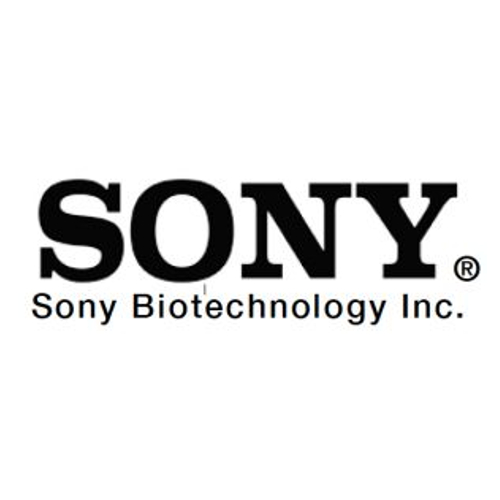CD137L Monoclonal / Brilliant Violet 421 / 5F4
Product Details
| Description | Brilliant Violet 421 anti-human 4-1BB Ligand (CD137L) | |
|---|---|---|
| Conjugate | Brilliant Violet 421 | |
| Clone | 5F4 | |
| Target Species | Human | |
| Applications | FC | |
| Supplier | Sony | |
| Catalog # | Sign in to view product details, citations, and spectra | |
| Size | ||
| Price | ||
| Antigen | ||
| Host | ||
| Isotype |
About CD137L
The protein encoded by this gene is a cytokine that belongs to the tumor necrosis factor (TNF) ligand family. This transmembrane cytokine is a bidirectional signal transducer that acts as a ligand for TNFRSF9/4-1BB, which is a costimulatory receptor molecule in T lymphocytes. This cytokine and its receptor are involved in the antigen presentation process and in the generation of cytotoxic T cells. The receptor TNFRSF9/4-1BB is absent from resting T lymphocytes but rapidly expressed upon antigenic stimulation. The ligand encoded by this gene, TNFSF9/4-1BBL, has been shown to reactivate anergic T lymphocytes in addition to promoting T lymphocyte proliferation. This cytokine has also been shown to be required for the optimal CD8 responses in CD8 T cells. This cytokine is expressed in carcinoma cell lines, and is thought to be involved in T cell-tumor cell interaction.[provided by RefSeq, Oct 2008]
The protein encoded by this gene is a cytokine that belongs to the tumor necrosis factor (TNF) ligand family. This transmembrane cytokine is a bidirectional signal transducer that acts as a ligand for TNFRSF9/4-1BB, which is a costimulatory receptor molecule in T lymphocytes. This cytokine and its receptor are involved in the antigen presentation process and in the generation of cytotoxic T cells. The receptor TNFRSF9/4-1BB is absent from resting T lymphocytes but rapidly expressed upon antigenic stimulation. The ligand encoded by this gene, TNFSF9/4-1BBL, has been shown to reactivate anergic T lymphocytes in addition to promoting T lymphocyte proliferation. This cytokine has also been shown to be required for the optimal CD8 responses in CD8 T cells. This cytokine is expressed in carcinoma cell lines, and is thought to be involved in T cell-tumor cell interaction.[provided by RefSeq, Oct 2008]
About Brilliant Violet 421
Brilliant™ Violet 421 (BV421) is a Violet-emitting non-tandem polymer fluorophore that can be excited by the 405 nm Violet laser and collected using a 450/50 bandpass filter. BV421 has an excitation peak at 405 nm and an emission peak at 421 nm, and is spectrally similar to Alexa Fluor™ 405 and Cascade Blue. Other dyes that are considered similar include SuperNova V428 (Beckman Coulter), StarBright Violet 440 (Bio-Rad) and SuperBright 436 (Thermo Fisher). BV421 is very bright and is most commonly used for flow cytometry. Its photostablity, fixation stablity, and non-toxicity properties also make BV421 useful for cell sorting and live cell Fluorescence Microscopy applications. This dye is part of the Brilliant™ Violet dye line of fluorescent polymers. Brilliant™ Violet 421 polymer is employed as the donor molecule in a series of tandem dyes with acceptor molecules emitting at various points across the visible light spectrum. The Brilliant™ Violet dyes are a superior alternative to QDot nanocrystals and similar to SuperNova dye from Beckman Coulter and StarBright dyes from Bio-Rad.
Brilliant™ Violet 421 (BV421) is a Violet-emitting non-tandem polymer fluorophore that can be excited by the 405 nm Violet laser and collected using a 450/50 bandpass filter. BV421 has an excitation peak at 405 nm and an emission peak at 421 nm, and is spectrally similar to Alexa Fluor™ 405 and Cascade Blue. Other dyes that are considered similar include SuperNova V428 (Beckman Coulter), StarBright Violet 440 (Bio-Rad) and SuperBright 436 (Thermo Fisher). BV421 is very bright and is most commonly used for flow cytometry. Its photostablity, fixation stablity, and non-toxicity properties also make BV421 useful for cell sorting and live cell Fluorescence Microscopy applications. This dye is part of the Brilliant™ Violet dye line of fluorescent polymers. Brilliant™ Violet 421 polymer is employed as the donor molecule in a series of tandem dyes with acceptor molecules emitting at various points across the visible light spectrum. The Brilliant™ Violet dyes are a superior alternative to QDot nanocrystals and similar to SuperNova dye from Beckman Coulter and StarBright dyes from Bio-Rad.
Experiment Design Tools
Panel Builders
Looking to design a Microscopy or Flow Cytometry experiment?
Validation References
Reviews & Ratings
| Reviews |
|---|
Looking for more options?
659 CD137L antibodies from over 30 suppliers available with over 66 conjugates.





